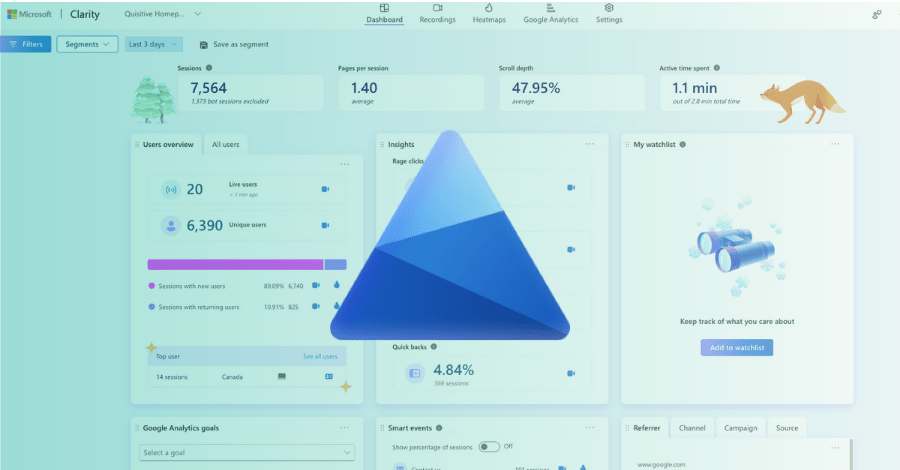There’s a new kind of workhorse in the workplace, but it’s not human. It’s called artificial intelligence (AI) and machine learning, and it’s quickly changing the future of work.
As a business owner, artificial intelligence allows you the opportunity to maximize productivity while minimizing expenses. It closes the growing gap between structured and unstructured data in company operations, and machine learning can include everything from physical tasks to speech recognition, problem-solving, and learning abilities. AI puts you on the cutting edge of development and technology for your industry.
This is your detailed guide about artificial intelligence in the workplace.
AI Is Taking Over (and Creating) Jobs
In 1930, John Maynard Keynes wrote about “technological unemployment,” but it was the National Bureau of Economic Research and Boston University’s 2017 study that really grabbed the attention of the business world.
It found that just one robot for every 1,000 workers could reduce the employment-to-population ratio by up to 34% while also creating a decrease of 0.25-0.5% in wages.
What Jobs Will AI Replace?
Factories aren’t the only places losing jobs to technology. With many systems already automated, that creates a perfect fit for AI to take over. In Belgian hospitals, a receptionist robot model is already at work, standing over 4ft tall and understanding 20 different languages.
Other jobs that are being replaced by AI technology include these popular roles.
Math is one area that can easily be automated with computers being taught to perform complex math equations. Software and internet programs for DIY accounting, Quickbooks, FreshBooks, and the ever-growing assortment of newer programs that pop up every year eliminate the need for professional help.
Robots are being devised to handle both intricate surgeries and more basic procedures, which frees up doctors and medical personnel for more complex cases. AI also helps with automated data entry and collection for more efficient recordkeeping and higher patient satisfaction.
Factory jobs for humans are on the decline, with robots taking over many construction and manufacturing roles. This is especially evident where repetitive tasks are concerned because AI can also carry physical demands to provide greater efficiency and lower overhead with no human error.
4. Taxi Drivers and Chauffeurs
Self-driving cars are already here, so self-driving services for passengers are likely not that far off. This will be an excellent resource for courier services and mail and food delivery, that can use robots with wheels or that travel by air.
Logistics and transportation is another area that will soon be overrun by robotic innovation. Robots, drones, and self-driving vehicles all make a compelling case for faster and more cost-effective delivery.
6. Soldiers and Security Guards
These are dangerous positions that can be replaced by the flying technology of drones that deliver automated reporting without human error. AI can furnish other things that humans simply can’t provide, like heat sensors or video and photo capabilities. With basic security and monitoring out of the way, military and security personnel can be employed for more cognitive, strategic purposes.
With a threat to all of these industries, you may be wondering what is left, but AI is creating new jobs, too.
Jobs That AI Will Create
Now that the more mundane, repetitive work is out of the way, there is a greater need for creative skills. Decision-making, empathy, and social skills are not items that AI cannot replicate.
AI will also create new jobs, such as these.
1. IT facilitator
This position will oversee robotic operations and ensure that everything is accurate and working in conjunction with other tools, programs, and resources.
2. AI Development Manager
Businesses will need someone to research and integrate all tools and programs within the company’s infrastructure. Someone will need to sell and set up this technology and then perform ongoing maintenance as well.
3. AI Healthcare Technicians
To work in conjunction with this new technology, there will be a need for special healthcare techs who can set up, support, and analyze AI data. This role will empower nurses to provide better care, thanks to technology that better identifies and monitors a person’s health.
4. Government AI Analysts
Local, state, and federal governments are already incorporating AI technology into government operations. This will create a growing need for AI analysts who can implement new systems and find ways to improve through a detailed study of AI-driven data.
5. Modern Transportation Controller
This is a take on the traditional transportation controller but expanded to include emerging technology such as drones, self-driving cars, trucks, and buses. There will be a need for someone to set up, program, and monitor this infrastructure to ensure there are no technical snags that could create havoc on America’s roadways and in its airspace.
6. Augmented Reality Designers
With a rise in AI technology, people will be more interested than ever in augmented reality and its abilities to transform everyday life in areas like entertainment, training, and growth. Designers will need to provide fresh, current content on an ongoing basis, which will include brainstorming, writing, and building these programs.
These are just a few of the ways that AI can create jobs in the workforce, but there are so many more that we cannot yet fathom as technology continues to transform the world as we know it.
How Artificial Intelligence Improves Workplace Productivity
Despite how it may seem, AI is creating technology that is, in turn, creating more jobs. According to a recent study from analytical firm McKinsey & Company, AI could create up to $15.4 trillion annually across 19 business sectors.
It has successfully changed the way that businesses are able to work, providing a more flexible workplace. The more monotonous, wearisome tasks are being replaced by robotic powerhouses that are able to replicate human action and response.
AI’s Implications for Cloud Computing
Cloud computing with AI allows you to benefit from greater accessibility for your entire company. By embedding AI into an internal IT infrastructure, it allows smaller companies with limited cash flow to jump on the AI bandwagon. It also allows for a far wider audience to access AI technology via remote cloud commuting from anywhere. Companies can now access tools and software that were unavailable before and at a far more affordable price.
The cloud delivers greater efficiency, too, now that companies can work smarter. You can not only automate standard work processes but also use automation to eliminate recurring tasks. AI can not only alert you to potential issues but it can also pinpoint and resolve these issues independently for a far more secure and reliable network for your whole company.
Cloud computing delivers better data management to collect, store, and analyze. Many companies are incorporating AI into Software-as-a-Service (SaaS) platforms, which allows you to use large amounts of data, such as those collected from studies, trials, or reports, to make better decisions for your company.
How to Prepare for the Future of Automation in the Workplace
AI can be an invaluable addition to the workplace, but it’s also enough to make your colleagues wrought with fear. AI is making waves in a lot of fields, but it’s enhancing them for the better, and that is what employees need to understand.
Address AI With Your Workforce
As a leader, it will be your responsibility to address the addition of AI solutions to your company. AI usually signifies a threat to job security, so your staff may be nervous about the changes, and you should be prepared to address the matter truthfully and tactfully. You can support them with training and education on what AI means for their jobs.
It’s important to point out how AI will transform workplace culture. Employees are more likely to enjoy their jobs more because there is less of a focus on repetitive, mundane tasks and more of a concentration on creative outlets.
Companies should consider investing in proper training to ensure your business is getting the most out of your new AI-enhanced infrastructure. After all, these changes will mean nothing if you can’t maximize your investment.
Stay Up-to-Date on AI Innovations
AI has many incredible features that can transform your business for the better, but first, you must understand what it has to offer. This is a constantly evolving field with new technology, so it is important to stay on top of new developments so you can start one step ahead of the competition.
To best understand how AI can work for your business, take the time to educate yourself and others in the workplace on the benefits of AI, as well as developing trends and special features for your business.
A cloud solutions provider can help you not only migrate to the cloud but also work with you to show you to operate in the cloud, as well. For many companies, cloud innovation is best delivered by a professional AI consultant who can help you remain abreast of emerging trends while also helping with things like education and training.
The world is rapidly changing every day, and AI is the best way for your business to get onboard for a better, more capable workplace.

;)


